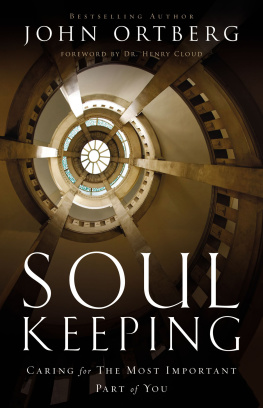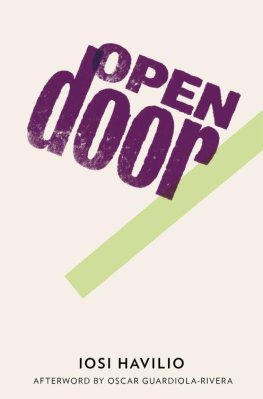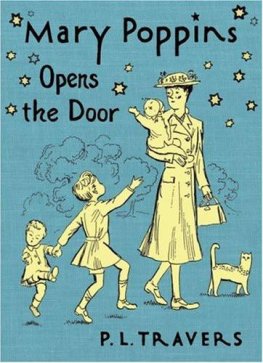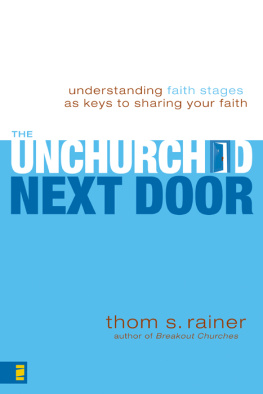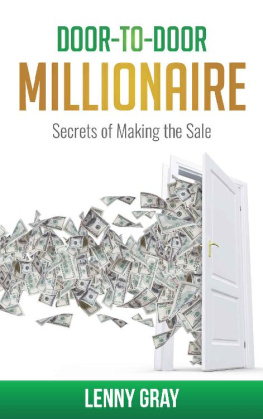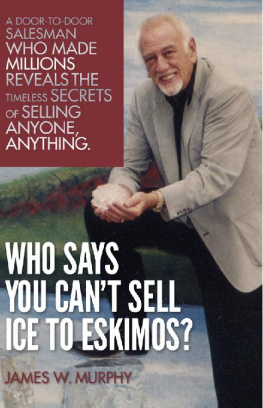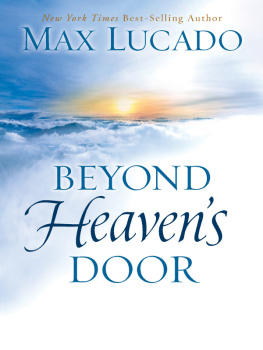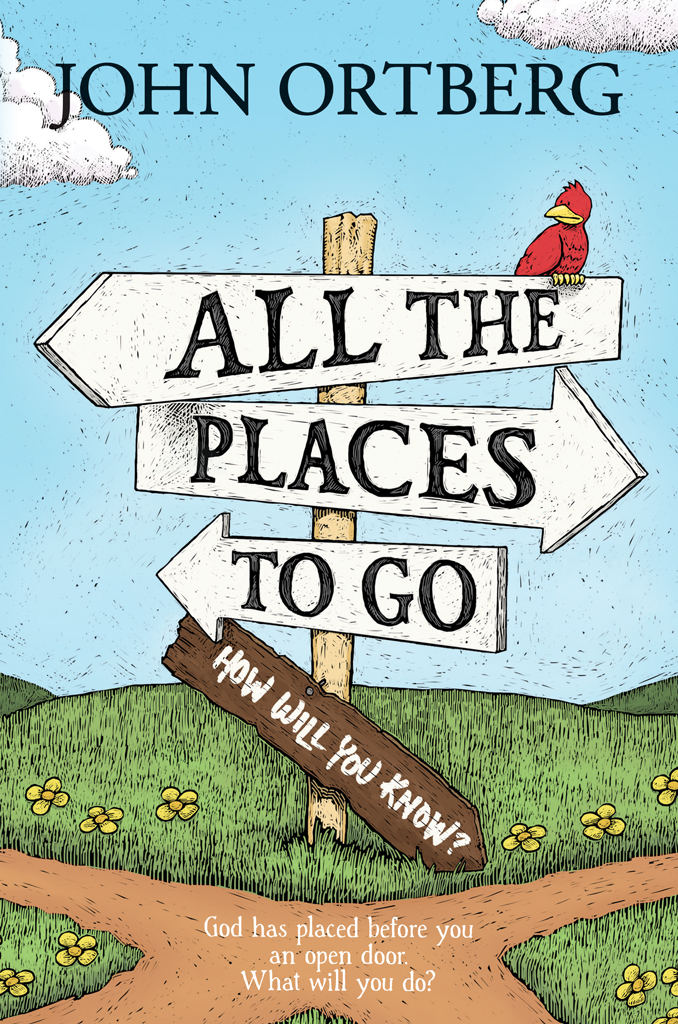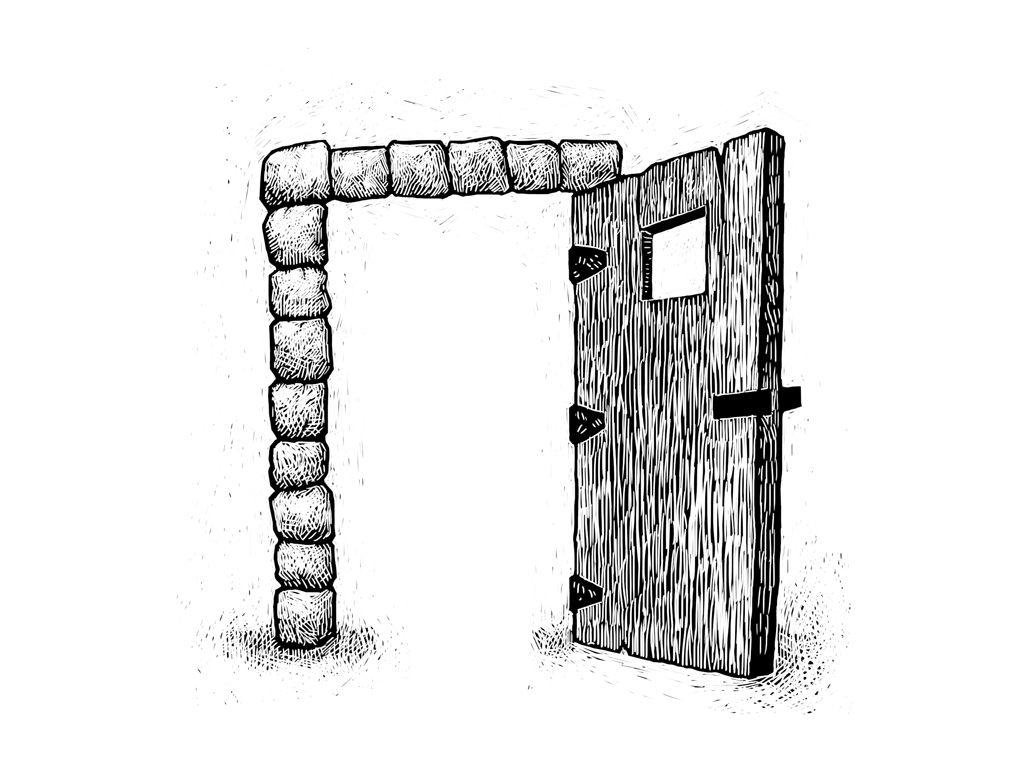Visit Tyndale online at www.tyndale.com.
TYNDALE and Tyndales quill logo are registered trademarks of Tyndale House Publishers, Inc.
All the Places to Go... How Will You Know?: God Has Placed before You an Open Door. What Will You Do?
Copyright 2015 by John Ortberg. All rights reserved.
Cover and interior illustrations copyright 2014 by Jeff Gregory. All rights reserved.
Designed by Jacqueline L. Nuez
Edited by Jonathan Schindler
Published in association with Yates & Yates (www.yates2.com).
All Scripture quotations, unless otherwise indicated, are taken from the Holy Bible, New International Version, NIV. Copyright 1973, 1978, 1984, 2011 by Biblica, Inc. (Some quotations may be from the earlier NIV edition, copyright 1984.) Used by permission. All rights reserved worldwide.
Scripture quotations marked KJV are taken from the Holy Bible, King James Version.
Scripture quotations marked NRSV are taken from the New Revised Standard Version Bible, copyright 1989, Division of Christian Education of the National Council of the Churches of Christ in the United States of America. Used by permission. All rights reserved.
Scripture quotations marked ESV are taken from The Holy Bible, English Standard Version (ESV), copyright 2001 by Crossway, a publishing ministry of Good News Publishers. Used by permission. All rights reserved.
Scripture quotations marked NLT are taken from the Holy Bible, New Living Translation, copyright 1996, 2004, 2007, 2013 by Tyndale House Foundation. Used by permission of Tyndale House Publishers, Inc., Carol Stream, Illinois 60188. All rights reserved.
Scripture quotations marked NKJV are taken from the New King James Version. Copyright 1982 by Thomas Nelson, Inc. Used by permission. All rights reserved.
ISBN 978-1-4143-7900-5 Hardcover
ISBN 978-1-4964-0611-8 ITPE edition
Build: 2014-12-23 14:19:11
To Barbara Lynn (Ortberg) Harrison and Barton David Ortberg, with whom I snuck through the secret gates and open doors of childhood, and who courageously walk through them still, this book is most gratefully dedicated.
CHAPTER 1
ALL THE PLACES TO GO... HOW WILL YOU KNOW?
I F YOU HAD TO SUMMARIZE your life in six words, what would they be?
Several years ago an online magazine asked that question. It was inspired by a possibly legendary challenge posed to Ernest Hemingway to write a six-word story that resulted in the classic For sale: baby shoes, never worn.
The magazine was flooded with so many responses that the site almost crashed, and the responses were eventually turned into a book. Not Quite What I Was Planning is filled with six-word memoirs by writers famous and obscure. The memoirs range from funny to ironic to inspiring to heartbreaking:
- One tooth, one cavity; lifes cruel.
- Savior complex makes for many disappointments.
- Cursed with cancer. Blessed with friends. (This one was written not by a wise, old grandmother but by a nine-year-old boy with thyroid cancer.)
- The psychic said Id be richer. (Actually, this author might be richer if she stopped blowing money on psychics.)
- Tombstone wont say: Had health insurance.
- Not a good Christian, but trying.
- Thought I would have more impact.
The challenge of the six-word limitation is its demand to focus on what matters most, to capture briefly something of significance. Winston Churchill once sent a dessert pudding back to the kitchen because it lacked a theme. I dont want my life to be like Winstons pudding.
It is striking to think about what the characters of Scripture might write for their six-word memoirs. I think they would revolve around the intersection of the story of that persons life with Gods story. They would all be inspired by a divine opportunity that God had set before them and the response the yes or no that shaped their lives.
- Abraham: Left Ur. Had baby. Still laughing.
- Jonah: No. Storm. Overboard. Whale. Regurgitated. Yes.
- Moses: Burning bush. Stone tablets. Charlton Heston.
- Adam: Eyes opened, but cant find home.
- Shadrach, Meshach, and Abednego: King was hot. Furnace was not.
- Noah: Hated the rain, loved the rainbow.
- Esau: At least the stew was good.
- Esther: Eye candy. Mordecai handy. Israel dandy.
- Mary: Manger. Pain. Joy. Cross. Pain. Joy.
- Prodigal Son: Bad. Sad. Dad glad. Brother mad.
- Rich Young Ruler: Jesus called. Left sad. Still rich.
- Zacchaeus: Climbed sycamore tree. Short, poorer, happier.
- Woman caught in adultery: Picked up man, put down stones.
- Good Samaritan: I came, I saw, I stopped.
- Paul: Damascus. Blind. Suffer. Write. Change world.
Not quite what I was planning is the six-word memoir any of them could have written. In none of these cases would these characters have been able to predict where their lives would take them. They were interrupted. They were offered an opportunity or threatened by danger or both. This is how life works. We are neither the authors nor the pawns of our life stories but rather partners somehow with fate or destiny or circumstance or providence. And the writers of Scripture insist that, at least sometimes, in at least some lives in any lives where the person is willing that unseen Partner can be God.
Often in the Bible these opportunities seem to come in unmistakable packages. A burning bush. A wrestling angel. Handwriting on the wall. A fleece. A voice. A dream. A talking donkey like in Shrek.
But there is another picture of God-inspired opportunity sprinkled across Scripture that is easier for me to relate to. It is a picture of divine possibility that still comes to every life. It is a picture I have loved since my college professor Jerry Hawthorne introduced it to me:
To the angel of the church in Philadelphia write: These are the words of him who is holy and true, who holds the key of David. What he opens no one can shut, and what he shuts no one can open. I know your deeds. See, I have placed before you an open door that no one can shut. I know that you have little strength, yet you have kept my word and have not denied my name. (Revelation 3:7-8, emphasis mine)
A door, Dr. Hawthorne said, is one of the richest images in literature. It can mean safety (my door is chained and locked) or hiddenness (no one knows what goes on behind closed doors). It can mean rejection (she shut the door in my face) or rest (young mothers favorite room is the bathroom, where they can close the door and be alone).
But in this passage a door means none of those things. Rather, it is an open door, symbolic of boundless opportunities. Of unlimited chances to do something worthwhile; of grand openings into new and unknown adventures of significant living; of heretofore unimagined chances to do good, to make our lives count for eternity.
An open door is the great adventure of life because it means the possibility of being useful to God. The offer of it, and our response to it, is the subject of this book.
God Can Open a Door for Anybody
When my dad was soon to turn fifty, my mom asked him abruptly in the kitchen one day, John, is this all were going to do for the rest of our lives? Just this same routine of going to work and talking to the same people? My dad, a very stable CPA who had lived in Rockford, Illinois, his whole life and never thought of living anywhere else, said, I guess. But he started wondering if there might be something more.


